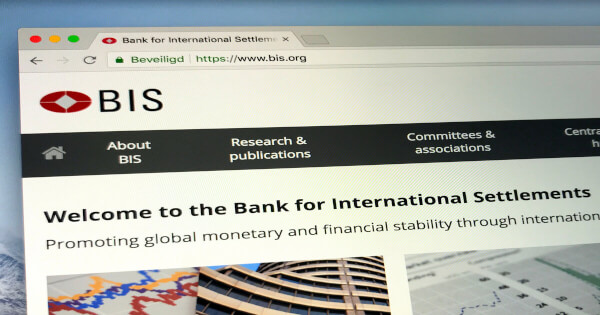The BIS collaborates with main central banks to check asset tokenization’s potential to reinforce the financial system and cross-border efficiencies.
The Financial institution for Worldwide Settlements (BIS) has introduced a collaborative initiative with a number of central banks from numerous nations, together with France, Japan, South Korea, Mexico, Switzerland, the UK, and the US Federal Reserve Banks, to discover the potential advantages and implications of asset tokenization throughout the world financial system. The initiative, dubbed “Challenge Agora,” goals to reinforce the performance of the financial system and tackle inefficiencies that presently exist in cross-border transactions.
Asset tokenization is the method of changing rights to an asset right into a digital token on a blockchain. This will embrace any asset, from actual property and commodities to mental property and monetary devices. Tokenization provides the promise of elevated liquidity, quicker settlement instances, simpler fractionalization of property, and broader entry to funding alternatives.
The rising curiosity in blockchain expertise and cryptocurrencies has prompted central banks worldwide to analyze the potential integration of those improvements into conventional monetary programs. “Challenge Agora” represents a big step by these establishments to grasp and doubtlessly leverage these technological developments to enhance world monetary operations and stability.
Central banks have been exploring numerous digital improvements, similar to Central Financial institution Digital Currencies (CBDCs), with a number of pilot applications underway. The collaboration in “Challenge Agora” extends past CBDCs, envisioning a future the place tokenized property may seamlessly combine with digital currencies to facilitate extra environment friendly and safe transactions.
The partnership will contain analysis and experimentation with asset tokenization’s technical and regulatory points. By working collectively, these central banks purpose to ascertain frequent frameworks and requirements that might allow interoperability between completely different nations’ monetary programs, thereby simplifying worldwide commerce and finance.
The BIS’s involvement underscores the significance of a coordinated method to monetary innovation, guaranteeing that new applied sciences align with the broader targets of economic stability, integrity, and inclusion. The central banks taking part in “Challenge Agora” will share their findings and insights, contributing to a physique of data that might form the way forward for the financial system.
As “Challenge Agora” progresses, it will likely be vital to watch how these developments affect present monetary establishments and programs. The potential advantages of asset tokenization are huge, however so are the challenges, together with regulatory compliance, cybersecurity, and the necessity for brand new infrastructure.
The implications of “Challenge Agora” may very well be far-reaching. If profitable, it couldn’t solely streamline cross-border funds but in addition democratize entry to funding alternatives, enabling a extra inclusive monetary ecosystem. Nonetheless, the journey towards integrating tokenized property into the worldwide financial system will possible be gradual, with many technical, authorized, and regulatory hurdles to beat.
“Challenge Agora” represents a proactive step by central banks to not solely maintain tempo with innovation but in addition to probably direct the course of the long run monetary panorama. As these establishments discover the intersection of expertise and finance, the world will probably be watching intently to see how the promise of asset tokenization manifests throughout the financial system.
Picture supply: Shutterstock
